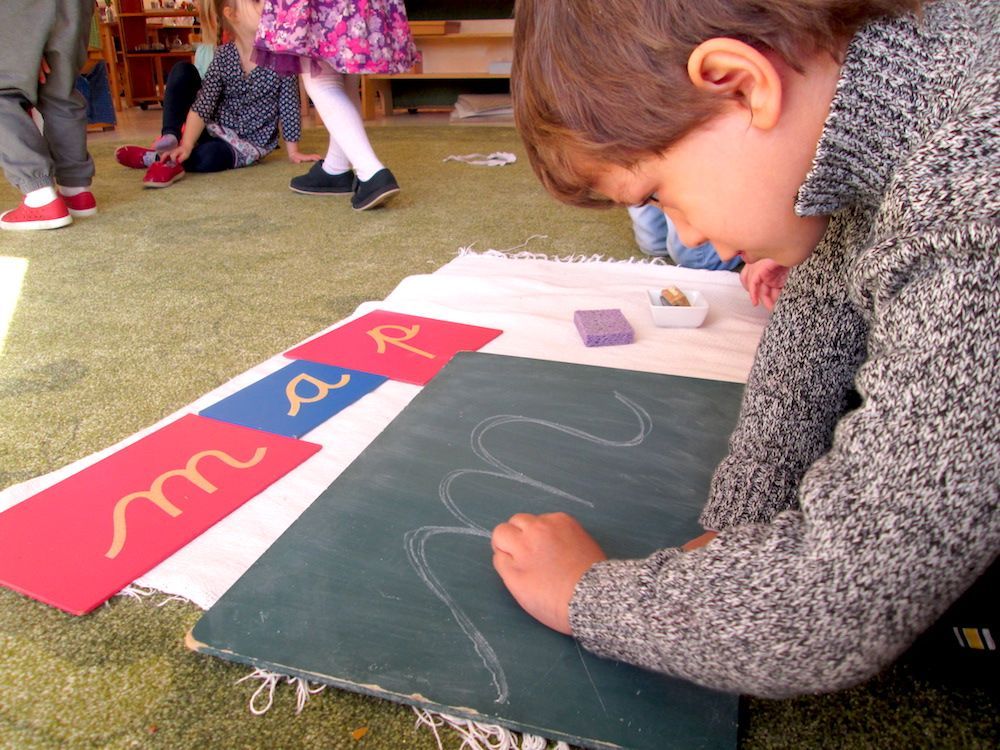
Teaching Writing Before Reading
“Writing develops...in the same way as speech, which is also a motor translation of sounds that have been heard. Reading, on the other hand, forms a part of an abstract intellectual culture. It interprets ideas represented by graphic symbols and is acquired only later.”
-Maria Montessori
It Starts with Sounds
Montessori teachers teach children the phonetic sound of each letter before they teach the name of each letter, creating the building blocks of reading. They take this approach because the child is able to absorb sounds easily, without having to memorize the name of each letter.
It’s Multi-sensorial
The use of the senses with the sandpaper letters and the moveable alphabet enhance the process. They are experiencing each sound and letter audibly, visually and through touch. This ultimately allows the child to grasp the information more quickly.
Learning to Write Naturally Leads into Reading
As the child begins to pick up on the sounds in each letter, letter combinations, and eventually words, they will be able to start reading naturally. Ironically, as a child learns how to write, they are also learning how to read. By working to put letter sounds together, sounding out the letters as they go along, children are starting to write. Maria Montessori herself explains that it is a natural extension of how children learn, First by sound, and eventually after, through memorization. Children do not look at words and try to remember what they are. Their brains are forming sounds and creating words and phrases in their heads.
Contact us today for more information, or more about the Montessori writing before reading method.


